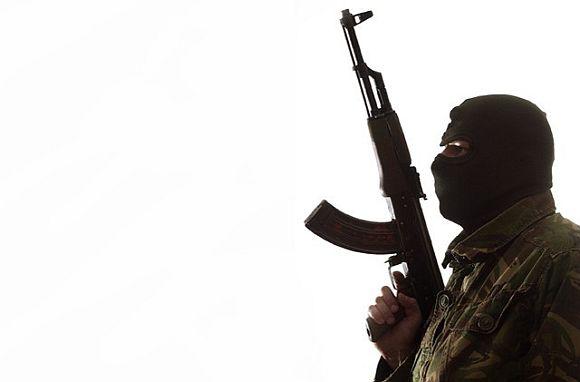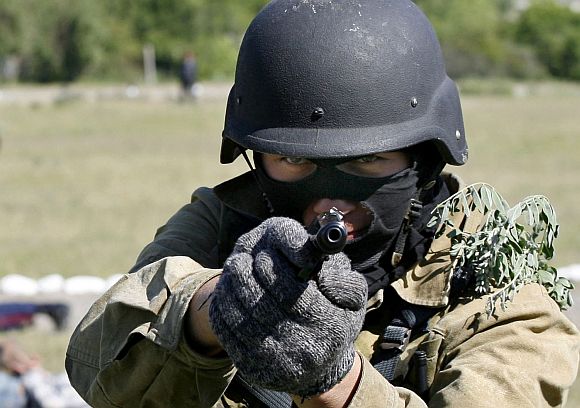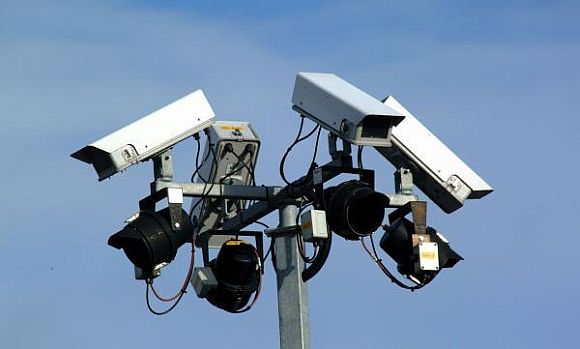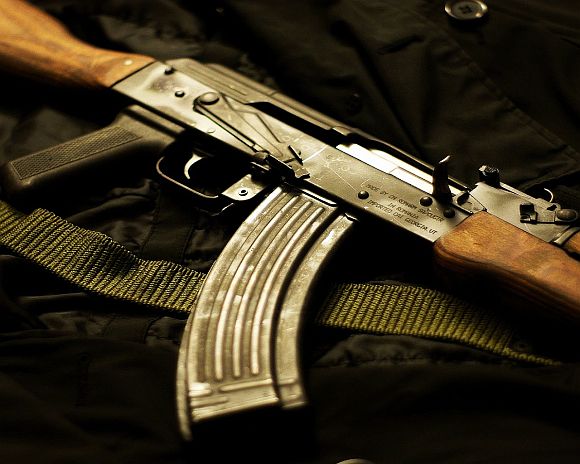Meera Sanyal
Three years after the attacks on Mumbai on 26/11, we have to ask ourselves: Are we any better off? What lessons did we learn? Can we prevent an attack or cope with it better today? Meera Sanyal on the outcomes we desire.
On the anniversary of 26/11, several of us question whether we have made any progress in our battle against terrorism. Many quote the success of the United States in preventing a major terrorist attack post-9/11. Others quote the ubiquitous surveillance cameras in the UK, as being a strong deterrent to would-be perpetrators.
The general perception, which grows with each passing attack, is that India is seen as a soft state, vulnerable to and unable to protect itself against such attacks. Spurred on by the impassioned anchors of the TV news channels, we indulge in collective breast-beating. "How can India claim to be a super power," we ask "when we cannot even prevent a bomb blast?"
Without wishing to defend the government, which undoubtedly can and should do more to beef up national security, this article proposes a simple hypothesis: a) We need to agree on the outcome we desire; b) it should be achievable and affordab#8804 c) when this outcome is achieved, we should celebrate success and publicise it as a failure of the terrorists.
The general feeling among citizens is that there is only one possible outcome that is desirable in dealing with terrorism and terrorists: there should be no more terrorist attacks. In fact, there are several, three of which are outlined below. I believe that rather than drifting along as we have done so far, we could closely examine these and make a conscious choice on the outcome we desire. Having done this, the chances that we will achieve such an outcome, and thereby deal with the problem, are much greater.
Article Courtesy: Gateway House: Indian Council on Global Relations
Outcome 1 : No more terrorist attacks
Outcome 1 : No more terrorist attacks
This is clearly the most preferred outcome. There can be no doubt that the Department of Homeland Security combined with the US Patriot Act, have made the US a strong and secure fortress against terrorism.
It is also the most expensive outcome to secure. It is estimated that the expenditure on Homeland Security in the USA is currently 80 per cent higher than that on education. The estimated cumulative expenditure in the past 10 years (both public and private) exceeds $3 trillion. Can India afford a comparable expense?
The anti-terrorism legislation required to secure this outcome also raises questions on possible infringements of human rights. As Ian Lupstick points out in his insightful paper, 'Trapped in the War on Terror', 83,000 suspects were confined and interrogated in the US post-9/11. Of these only 39 convictions were secured and only one foreign national was convicted.
Our experience in India of anti-terrorism legislations like Prevention of Terrorist Act and Maharashtra Control of Organised Crime Act has been mixed. There were several reported instances of misuse and abuse of the acts resulting in the repeal of POTA in 2004.
Thus, though "No more terrorist attacks" is the most wished-for outcome, it may be neither affordable, nor the most desirable, given that the route to secure it may not be one we wish to- or can afford to take.
...
Outcome 2: Pre-emption and retribution
Outcome 2: Pre-emption and retribution
This outcome as its name suggests relies on pre-empting terror attacks by targeting specific identified 'terror groups.' In the event of an attack that we fail to prevent, our aim must then be to swiftly identify the culprits and prosecute and punish them, so that others are deterred from following in their footsteps.
Though not as water-tight or secure as Outcome 1, many of us consider this as something we can legitimately achieve within the framework of our existing security and judicial systems.
The key terrorist organizations are well known and even recognised as Foreign Terrorist Organisations by the US and other major nations. Why then, can't we go in and 'take them out?'
Similarly, many of us are outraged at the amount the Indian state is spending on keeping Ajmal Kasab in custody, and cannot understand why it is taking so many years to bring to closure, what should be an open-and-shut case.
Regrettably the truth is that no matter how desirable this outcome, geo-political considerations make preemption difficult, if not impossible. As for the speed of our judicial system, it will take a while to expedite, and a much larger issue than dealing with terrorism.
Though in theory, "Preemption and retribution" is a much more feasible outcome, than the first "No more terrorist attacks", practice it seems as difficult to achieve.
...
Outcome 3 : Harden selectively and recover swiftly
Outcome 3 : Harden selectively and recover swiftly
As a very wise and senior defence officer once told me, "A terrorist functions under the garb of an ordinary citizen. He becomes the enemy within. The only way to fully guard against terrorism is to police every citizen. If you can't do this then harden those targets that you feel must be protected, and ensure resiliency everywhere else. Your success is in a swift recovery -- if the terrorist knows he cannot keep you down or break your spirit -- he has failed."
This is the essence of Outcome 3. It is also the one that is most sustainable in the long run, and the most achievable in the immediate future.
A necessary first step is to identify locations that we wish to protect at all costs. These could be places like transport hubs, schools and hospitals, places of religious worship, popular market places, administrative, legislative and judicial buildings, and police and defence establishments.
Hardened infrastructure implies both adequate and up-to-date human and electronic surveillance. Likewise, resiliency does not merely rely on the 'spirit of the people' but means that disaster management and business-continuity measures must be instituted and tested regularly. Regular fire drills must be conducted and crisis management teams and business continuity protocols established at a building, locality and city-wide level. Measures to seal off escape routes as well as arrange speedy evacuation in the case of an incident must be taken and tested.
While the state can undertake this for public spaces and buildings, citizens should be encouraged to do the same for private spaces as well. The more "hardened" locations we have, the tougher it will be for terrorists to wreak havoc.
The interesting thing about focusing on this outcome is that it provides insurance against more than just terrorist attacks -- it creates resiliency for any kind of disaster.
...
It is time we tackled terrorism with pragmatic determination
It is clear that each of the above outcomes is different. The scale of resources, both financial and human, needed to achieve each of these is also different. What is important is that we take a realistic and pragmatic approach to deciding what is feasible and achievable for us in the Indian context.
Rather than bemoaning the past, this is the dialogue we should have on the anniversary of 26/11 and arrive at a bipartisan consensus on which outcome to focus on. Once our target outcome is clear, the chances that we will devote the necessary focus to achieving it, are significantly improved.
The war against terrorism is likely to be a long and prolonged one. It is time we tackled it with the pragmatic determination that is essential to help us prevail.
Meera Sanyal is the Country Executive & Chairperson of the Royal Bank of Scotland and the President of the Indian Liberal Group. The views expressed are personal.






article